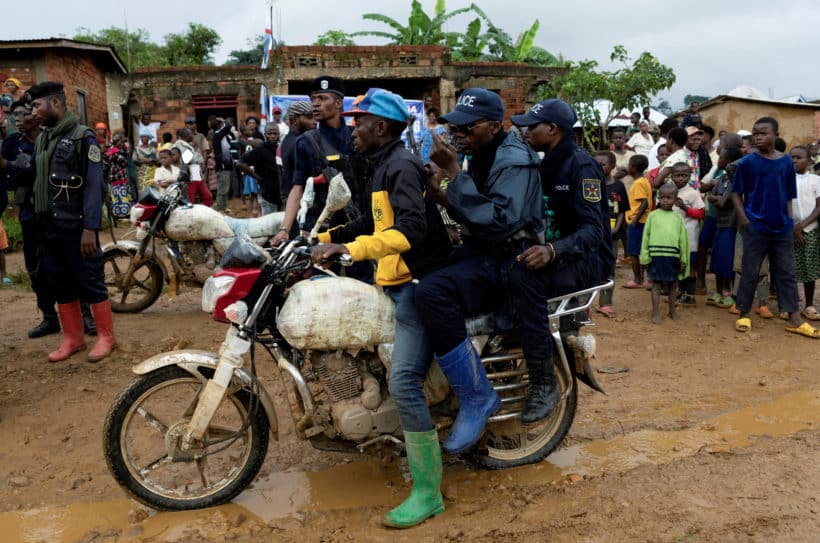
BRUSSELS/KINSHASA, Nov 30 (Reuters) – The European Union has cancelled its election observation mission for the Democratic Republic of Congo’s Dec. 20 general election, saying it would not be able to deploy people across the country for security reasons.
“Due to technical constraints beyond the control of the EU, we are forced to cancel the EU election observation mission to the Democratic Republic of Congo (DRC),” the EU said in a statement on Wednesday.
“The EU mission had planned to deploy long-term observers in most provinces of the DRC, but this is now no longer possible,” it said.
EU spokesperson Nabila Massrali told Reuters on Tuesday that election observers were already in Kinshasa and were supposed to be deployed across the country on Nov. 21, but that they were not able to go for security reasons.
Tensions are running high in the run-up to presidential, legislative and regional elections in Africa’s second-largest country, which is also struggling to contain a myriad of armed groups in its mineral-rich east.
A youth activist was killed on Tuesday by stones pelted during an opposition campaign rally in the city of Kindu.
Opposition candidates have also expressed concerns about the fairness of the vote, alleging irregularities that play in favour of the ruling coalition during voter registration. The electoral commission has denied this.
Congo’s government said it regretted the EU’s decision and that it was committed to holding transparent, free and inclusive elections.
It remained open to welcoming other observation missions, it added in a statement late on Wednesday.
“When the long-distance observers were due to be deployed, the authorities began to raise a whole series of problems relating to the use of satellite equipment and to impose other conditions that did not allow the observers to work in a secure and independent manner outside Kinshasa,” said a European diplomat who spoke on condition of anonymity.
The EU said it was exploring other options with the Congolese authorities, including the possibility of maintaining a mission of electoral experts to observe the electoral process from the capital. (Reporting by Charlotte Van Campenhout and Sonia Rolley; Additional reporting by Ange Kasongo; Writing by Nellie Peyton; Editing by Sharon Singleton)

